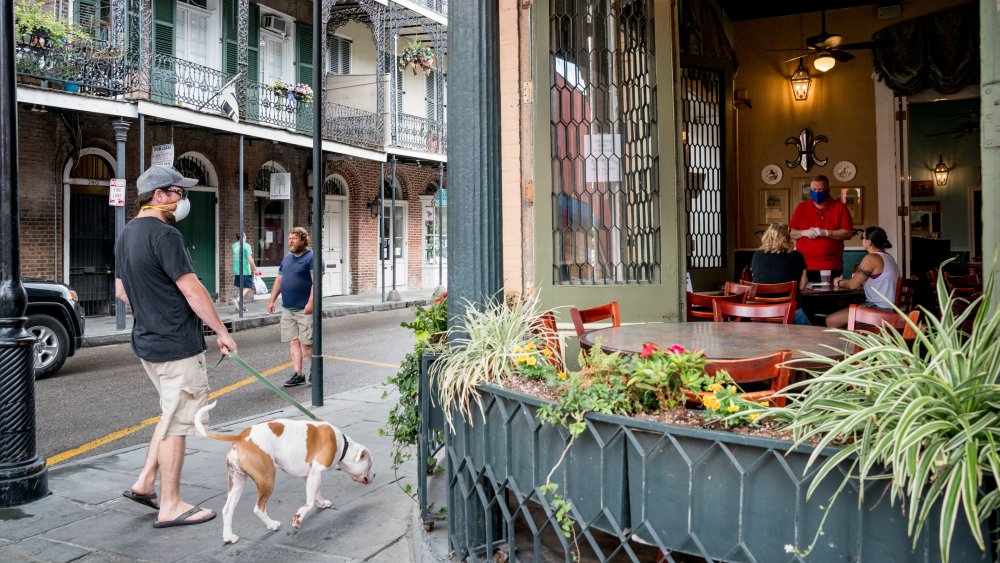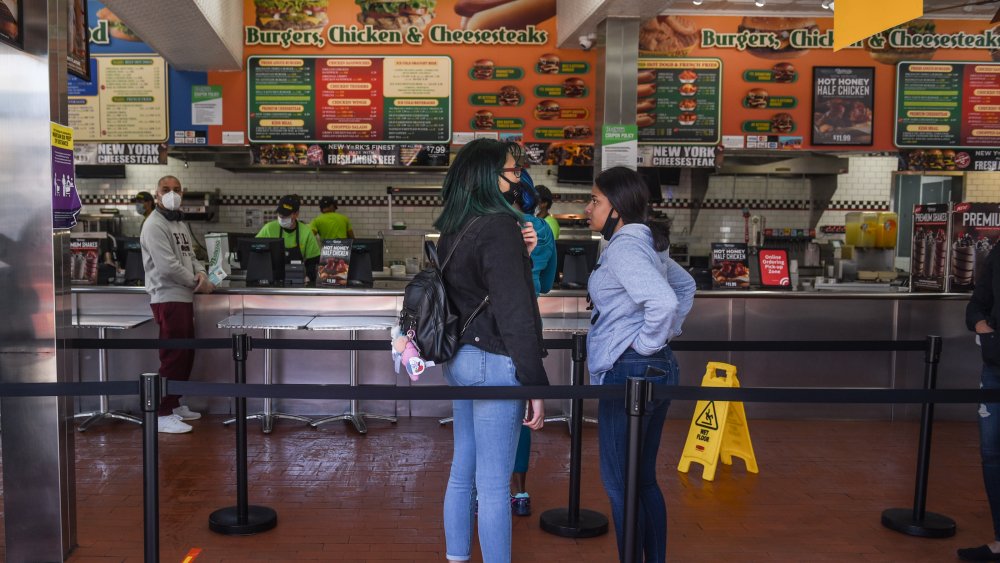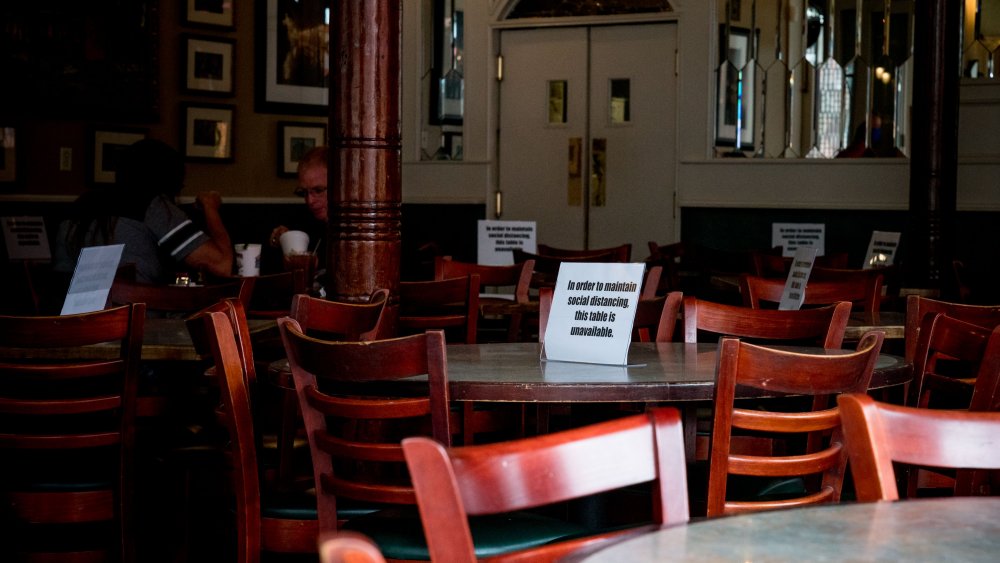Is It Really Safe To Eat Out Now?
All across the country, restaurants are trying to navigate the new normal as businesses reopen in some states. Althought there is no study that points to how to safely reopen, new guidelines by the CDC have outlined advice to intensify cleaning, sanitation, and disinfection (via The New York Times). Meanwhile, industry groups like the National Restaurant Association, the James Beard Foundation, and the Food and Safety Program at the Aspen Institute have come up with clear guidelines to assist restaurants in navigating this challenge; these operating manuals could well set the standards for reopening under challenging public health conditions (via Eater).
Even with these guidelines in place, if you are a member of, or live with a family member in a high-risk group (older people, those with compromised immune systems), you may want to think long and hard before hitting a restaurant. Since the virus could start to spread again among people who meet in bigger groups (as it has in South Korea and China, as reported by The Japan Times), it may be prudent to continue enjoying takeout instead. A small study by Chinese researchers shows that one diner infected nine other persons at a restaurant, via the ventilation system (via The New York Times). And it's worth noting in an unventilated room, droplets produced by normal conversation could linger in the air for as long as 14 minutes.
Restaurants know the importance of Safety First
Given these concerns, you're well within your rights to do research on a restaurant to get details on safety practices and standards as it applies to both guests and staff. If a restaurant is ready to operate under the new normal, it will have taken advice from food safety experts, and will be happy to say so. North Carolina State University professor and food safety specialist Benjamin Chapman tells The New York Times you want to hear things like: "We're taking this seriously. We've trained our staff on how to wear masks, on the importance of hand washing and hand sanitizing. We've changed what we're doing to ensure that we're practicing social and physical distancing to keep you safe."
Restaurants in the know would have also heard about Safety First, the James Beard Foundation's guide to helping restaurants operate safely during the COVID-19 pandemic. The guide outlines what it calls "the baker's dozen" of 13 operating rules that every kitchen has to follow, compiled from information from chefs and restaurants around the country. It's currently in use by the Black Sheep restaurant chain in Hong Kong, as well as organizations and restaurants closer to home, which have continued operating by providing meals to frontline workers and charities. In a blog note on Safety First, author Katherine Miller notes that the guide is aimed at "helping clients and restaurant owners re-establish trust and confidence in dining out."
A restaurant's best efforts may not mean eating out is safe
But no matter how prudent and careful a restaurant might be, public health conditions may argue that it isn't a good idea to eat out, particularly since some of the establishments which have opened are located in states which have not really made progress in terms of bringing the virus under control. University of Minnesota public health professor Craig Hedberg says that there is a need to be aware of what is happening in your local community before making a decision to eat out. "So if you know that there are new cases continuing to be occurring every day in your community, you have to assume there's going to be a risk for transmission in public settings," he says.
Most importantly, it is imperative for restaurants and diners to do everything they can to remain safe while trying to return to normal, albeit a new normal. We can take it upon ourselves to wear face masks in public, maintain safe social distance, and sanitize our hands after touching common surfaces like menus and tables. Eating outside may also equal a safer dining experience.


